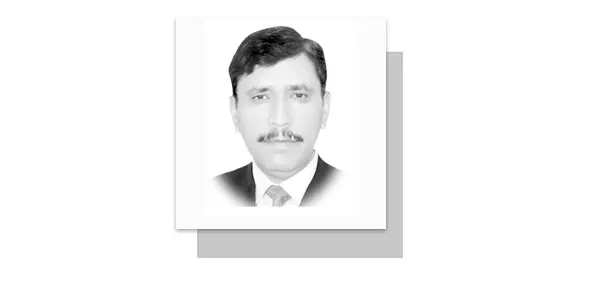On Tuesday last week, a heavy police contingent in full riot lined up in front of Islamabad’s National Press Club (NPC).
The deployment followed rumours that victims of the Capital Development Authority’s (CDA) anti-encroachment drive would protest there. The crowd never came. But the barricades, batons, and silence said plenty. The National Press Club has become a symbolic battleground. Since the recent regime change, it has hosted protests by Baloch activists, journalists, women’s groups, Afghan refugees, and political supporters. While mostly peaceful, some faced violent crackdowns—particularly ethnic protests and political clashes with media workers.
Tuesday’s non-event wasn’t a one-off. It reflected a deeper paralysis gripping Islamabad: a city where repression has become routine, and where the architecture of governance is falling apart. The CDA is razing shops, homes, and markets even though the Islamabad High Court (IHC) has ruled it defunct, ordering its powers be transferred to an elected Metropolitan Corporation (MCI)—yet elections remain indefinitely delayed.
Meanwhile, inflation is soaring, joblessness rising, and growth shrinking. Survival feels like a punishable offense. But this time, the pain isn’t limited to the poor. In a startling turn, the government has gone after housing societies—once power players in Islamabad’s patronage ecosystem. These entities shaped policies and campaigns for decades. Now, their offices are raided, approvals frozen, and future projects uncertain. Some call it cleanup. Others see a regime turning on its own. And when insiders feel threatened, they often retreat—or switch sides. That’s when regime change rumours surface. Today, such whispers fill Islamabad’s cafés, ministries, and diplomatic corridors—not as fantasy, but as calculation. Public trust has crumbled. With courts bypassed, local representation shelved, and dissent punished, people now sidestep the system entirely. Each protest that fizzles before it begins is
not a win for the state—it’s a verdict on its legitimacy. Grievances are converging. From Baloch and Pashtun rights advocates to PTI supporters and sidelined religious parties, all now view Islamabad as the final stage. But they aren’t rushing in.
Their resistance has adapted: from marches to muteness, from slogans to digital subversion. Riot gear still shows up—but the crowd has moved on. Right now, what we’re seeing is not protest avoidance. It’s tactical adaptation. The riot gear, the batons, the armoured vehicles—they’re all showing up. But the crowd has moved on to digital spaces, whispered networks, and indirect pressure. The power of public confrontation has given way to psychological siege. Islamabad doesn’t just host the crisis. It is the crisis: an unaccountable regime gripping an anxious capital. The more it cracks down, the more it exposes its own fragility. If silence is the= only sound Islamabad hears now, it’s not peace—it’s the pressure building before the break. Yet a way out remains: the government must enforce the IHC ruling, dissolve CDA’s unlawful control, and restore powers to an elected MCI. Only through local elections and democratic legitimacy can tensions ease and the capital be steered away from the brink of explosive disorder.
—The writer is a political analyst, based in Islamabad.
(riaz.missen@gmail.com)


















